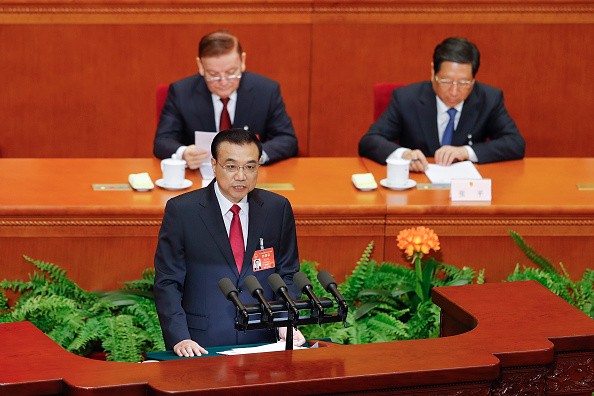Since he assumed his position as China's premier in 2013, Li Keqiang has taken up the cudgels for reform. He is also better known for using metaphors to describe his job.
This year, at the opening of the National People's Congress (NPC), Li called it "the struggle from chrysalis to butterfly," which is less colorful than what he said before that China's economic reform needs the courage of a "warrior cutting his own wrist."
But according to an article in The Economist, Li's accomplishments were not as impressive as his imagery or metaphor. If he had limited accomplishments, it was due to his limited power, the article said.
In China, prime ministers preside over the country's economic affairs, which has been the tradition for almost three decades.
But now, Li's power has been eclipsed by President Xi Jinping, whom everyone knows makes the decisions about the economy. Many officials praised Xi and referred to him as the "core" of the Party. Li also recognized the president's "sound leadership."
Hailed as China's most powerful leader since Deng Xiaoping, Xi is expected to strengthen his power at this year's congress where he will likely appoint allies to important positions. However, it is not known if he will support Li in his second term as prime minister.
It was Li's job as premier to see to it that economic policies are implemented. He is concerned about achieving the economic targets as much as maintaining stability. After achieving the 6.7-percent growth target last year, Li announced that the country is aiming for about 6.5 percent this year. By this, the central government indicates that it wants restraint, which means local authorities must avoid wasteful investments. The premier is wary of overheating which could further worsen or increase debt.
At the NPC, the country's other targets were laid down. The finance ministry said that it would like to maintain the budget deficit to 3 percent of the GDP this year, while the central bank is urging for a slower growth in the money supply.
Needed reforms
In his report, Li warned about the financial risks faced by the country. But the government has already moved to curb the risk. The central bank made a slight increase in short-term interest rates which drove investors to reduce their risky stakes. Last month, the government appointed Guo Shuqing as bank regulator, which indicates China's serious efforts to clean up its financial system.
While espousing reform, Li offered little information on how to carry it out, the report said. While he urged state-owned enterprises to be more competitive, he stopped short of telling them that they should be privatized. As he pledged to improve the market for rural land, he said nothing about allowing farmers to own the land. He also did not suggest that imposing a property tax could help support local governments.
Although these are the reforms that China needs to continue its economic success, this year's congress did not seem to talk about it, the report said. For now, Li's job is to make sure that the "chrysalis" is healthy and the responsibility to transform the "pupa into a butterfly" lies in the hands of President Xi and the party.



























